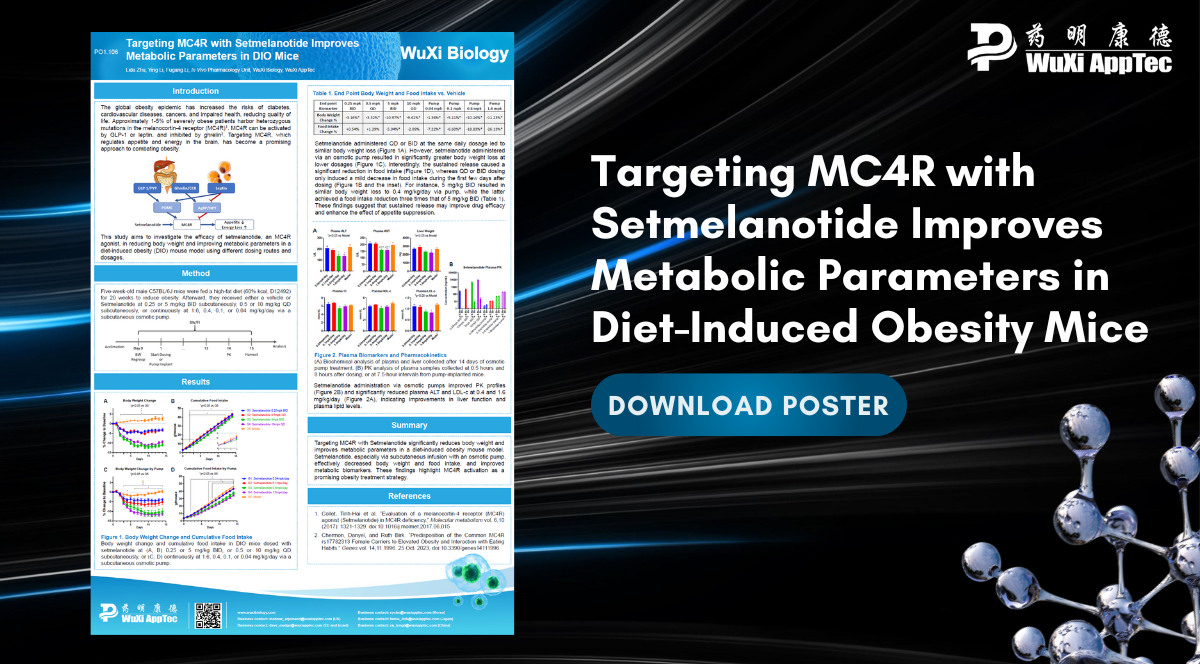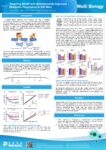Targeting MC4R with Setmelanotide Improves Metabolic Parameters in DIO Mice

The global obesity epidemic is a significant public health concern, increasing the risk of various chronic diseases, including diabetes, cardiovascular diseases, and certain cancers, ultimately reducing overall quality of life. Approximately 1-5% of severely obese patients have been found to carry heterozygous mutations in the melanocortin-4 receptor (MC4R) gene. Targeting MC4R, which regulates appetite and energy in the brain, has become a promising approach to combating obesity.
At the 32nd European Congress on Obesity, WuXi Biology presented a poster highlighting a study that evaluated the efficacy of setmelanotide, an MC4R agonist, in reducing body weight and improving metabolic parameters in a diet-induced obesity (DIO) mouse model. The authors demonstrate that setmelanotide effectively reduced body weight and food intake, and improved metabolic biomarkers. These findings spotlight MC4R activation as a promising treatment strategy for obesity.

ECO 2025 Poster_Targeting MC4R with Setmelanotide Improves Metabolic Parameters in DIO Mice
Related Content
Obesity is a significant risk factor for developing conditions like type 2 diabetes, heart disease, stroke, and several types of...
VIEW RESOURCEInternational Women's Day: Safeguarding Women's Health Across the Lifespan with the Power of Science
Introduction In recognition of International Women's Day, we spotlight women's health—a continuously evolving global healthcare issue. The year 2025 marks...
VIEW RESOURCE
